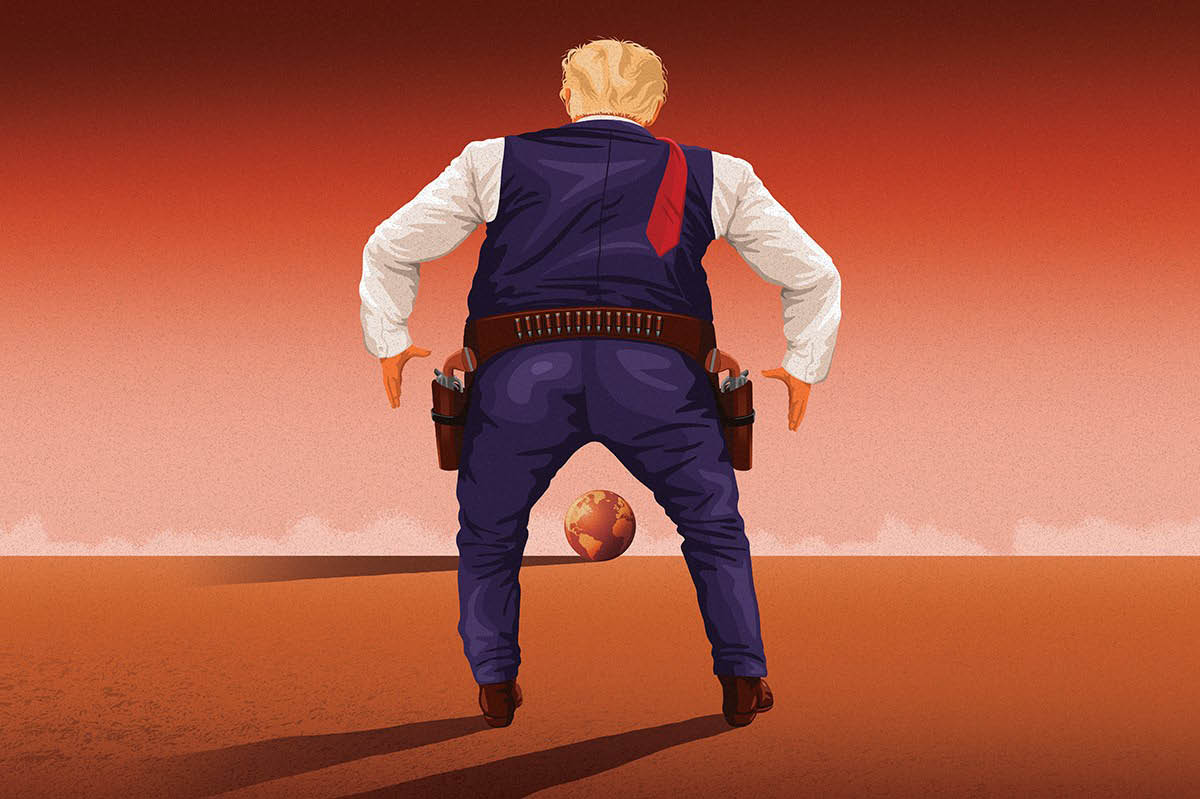Shao Yuqun: US Competitive Strategy on China Is Reshaping Situation in Taiwan Strait
(Hong Kong) on 26 November 2024
by Yuan Xiaomai (link to original)
According to Shao, the United States’ competitive strategy with China and the impact this is having on American Taiwan Strait policy is both significant and subtle. First, the details of U.S. policy objectives on the Taiwan Strait have shifted toward implicitly preventing China from achieving cross-strait unification in any form. Shao cited Joe Biden administration Assistant Secretary of Defense for Indo-Pacific Security Affairs Ely Ratner as having emphasized in a congressional hearing that Taiwan was a “critical node within the first island chain,” important in maintaining U.S. military hegemony in the region. At the time, Ratner’s statement came under heavy fire from certain American scholars and was judged as being very dangerous, because it implied that the U.S. would prevent cross-strait unification in order to ensure its military dominance. The Biden administration has since been very cautious about declaring its position on this issue, but based on the actual direction of its policy developments, preventing cross-strait unification by any means available is already an implicit goal of U.S. Taiwan Strait policy.
Second, the focus of U.S. Taiwan Strait policy has gone from maintaining the status quo across the strait to strengthening military deterrence and curbing China’s “impulse” to resolve the issue of Taiwan through military means. The U.S. is keenly aware that China’s asymmetric military advantage in the Western Pacific is further expanding. As a result, and based on both the analytical framework of “capability driving intention” and U.S. strategic need to ensure its absolute military supremacy in the Asia-Pacific, the emphasis of U.S. Taiwan Strait policy has undergone a shift: from maintaining the cross-strait status quo, to intensifying the military containment of China by enhancing military and security cooperation between itself, its regional allies and Taiwan. This policy of military containment will continue, regardless of how the U.S. presidential election has turned out.
Third, the U.S. is pushing for a “reinterpretation” of United Nations General Assembly Resolution 2758 to prevent China’s One China principle from prevailing over that of the U.S. One China policy within the U.N. system. Biden’s administration has been pushing for such a reinterpretation from the early days of his presidency, claiming that the resolution does not address the issue of Taiwan’s representation in the U.N. — but the intended goal is to maintain the “legitimacy” of the One China policy that the U.S. adheres to. This is entirely in keeping with the direction of the U.S. government’s strategy of great power competition with China: ensuring that the “rules-based international order” is fully under the leadership of the U.S. and that the “rules” are dominated by the U.S. and its network of allies.
Finally, drawing Taiwan into the U.S.-led system of regional alliances will dwarf the Chinese mainland’s successes by showcasing Taiwan’s achievements in the fields of supply chain security and governance models. Shao highlighted how Taiwan’s global leadership in microchip R&D and manufacturing made the island an important pawn in U.S.-Chinese technological competition and in U.S. supply chain security. Additionally, influenced by the ideological rivalry of “democracy versus autocracy” in U.S. strategy vis-à-vis China, Taiwan’s “liberal democratic system,” its “democratic elections,” its “model for responding to the COVID pandemic,” and so on have been much lauded by the U.S. government as a means of fashioning a “liberal” and “democratic” mode of governance that is superior to China’s “authoritarian” and “autocratic” one.
Avoiding direct military conflict with China was one of the core elements of the U.S. great power competition strategy, Shao said. At present, the U.S. is continuing to step up its military deterrence against China in the Taiwan Strait, and the negative impact of this is becoming increasingly evident. Once the next U.S. administration is in place, it will have a few months’ time in which to evaluate the current Taiwan Strait policy. The outcome of that evaluation will be worth paying attention to.

